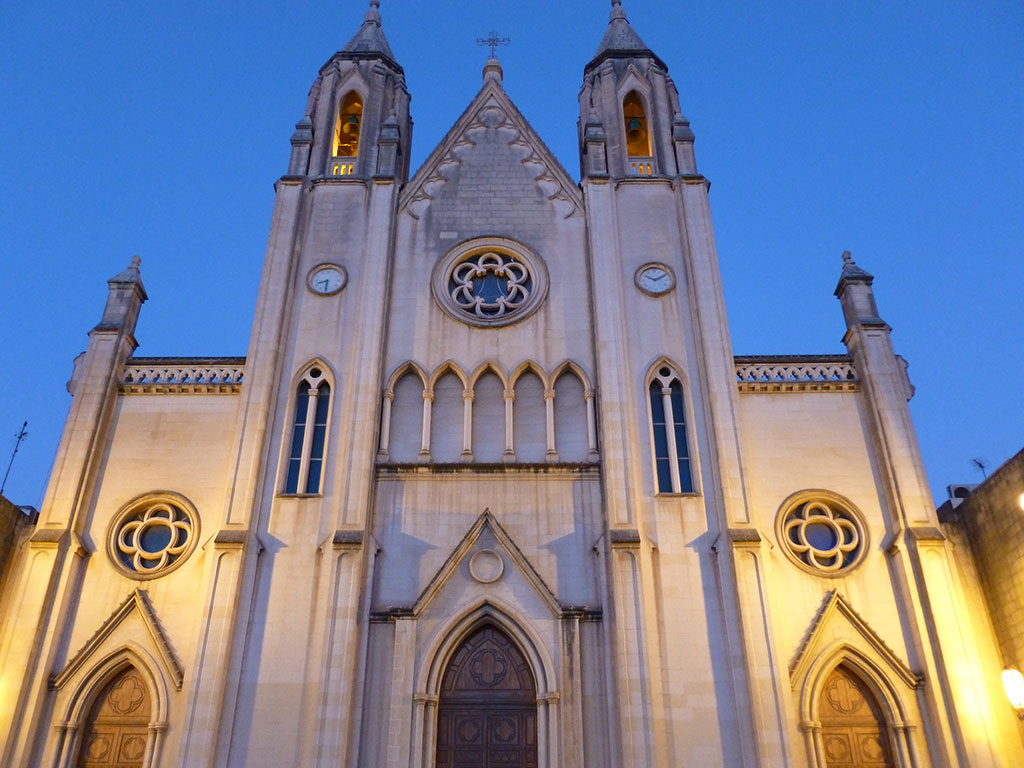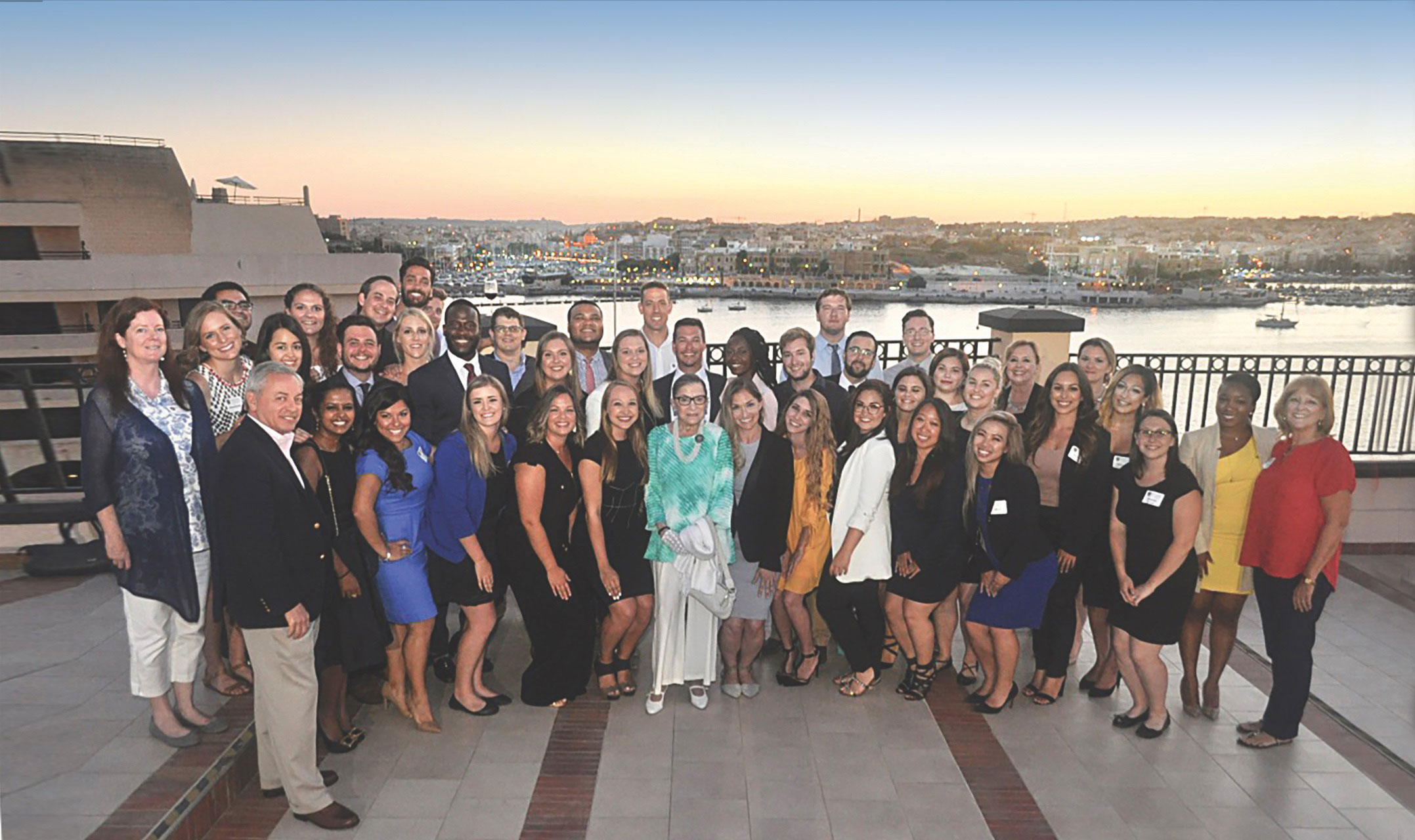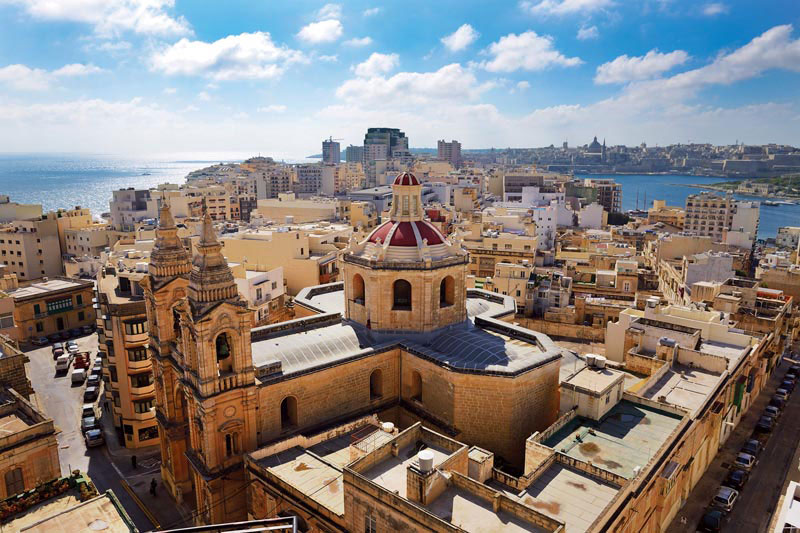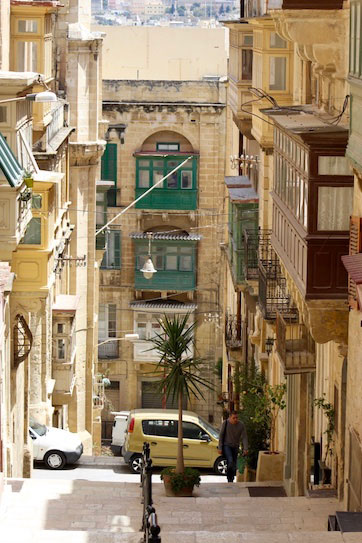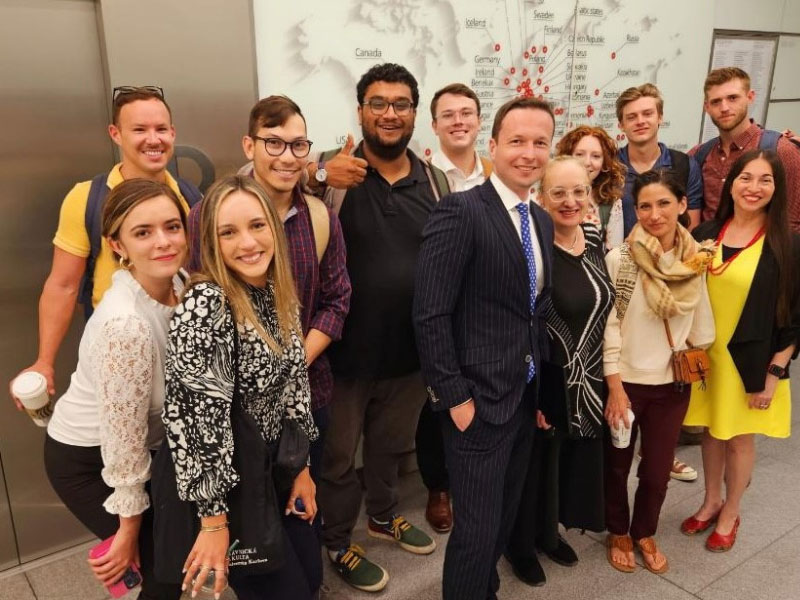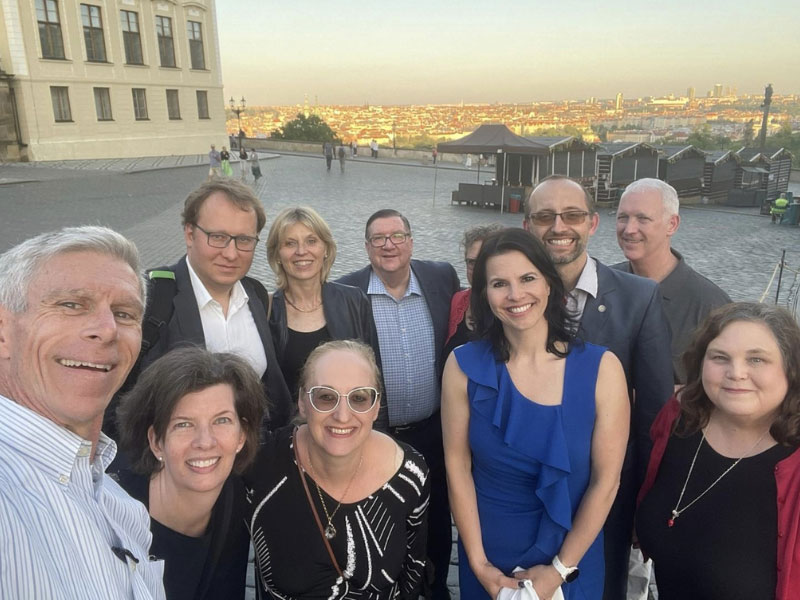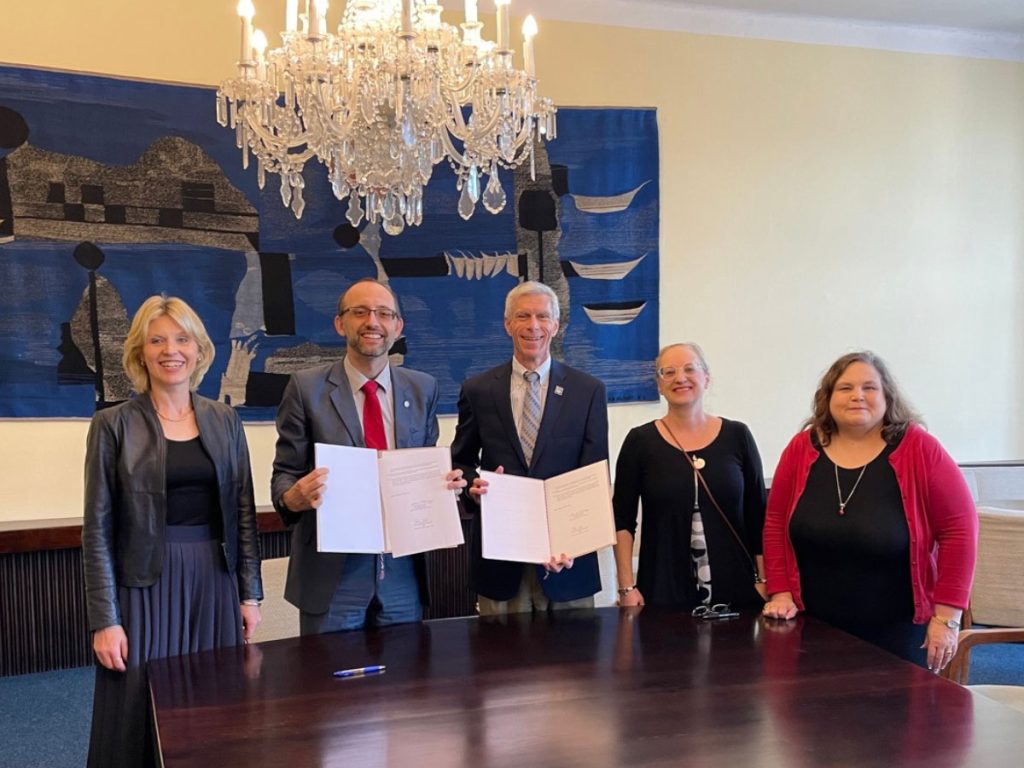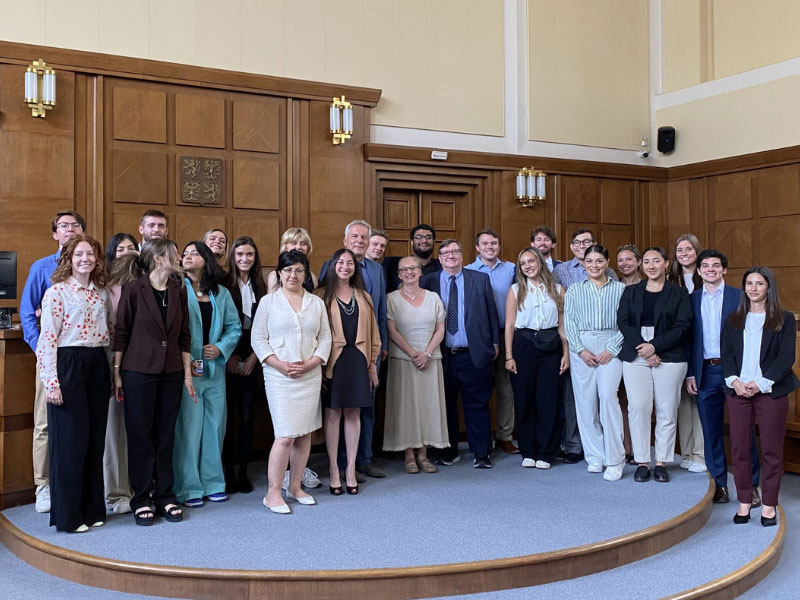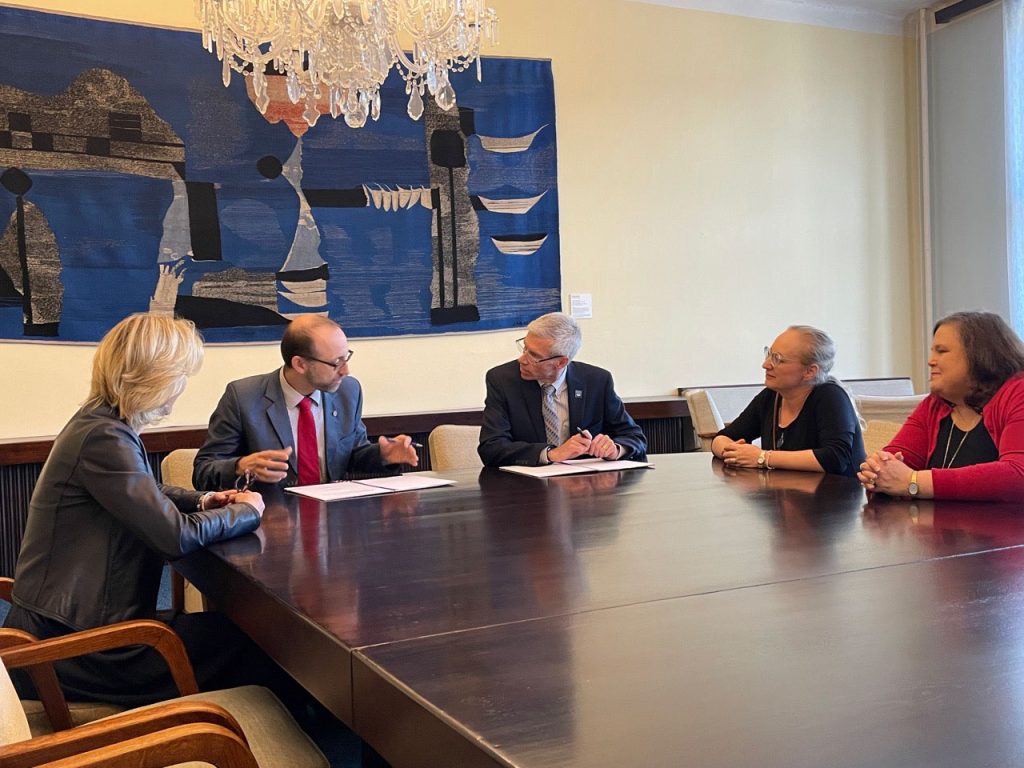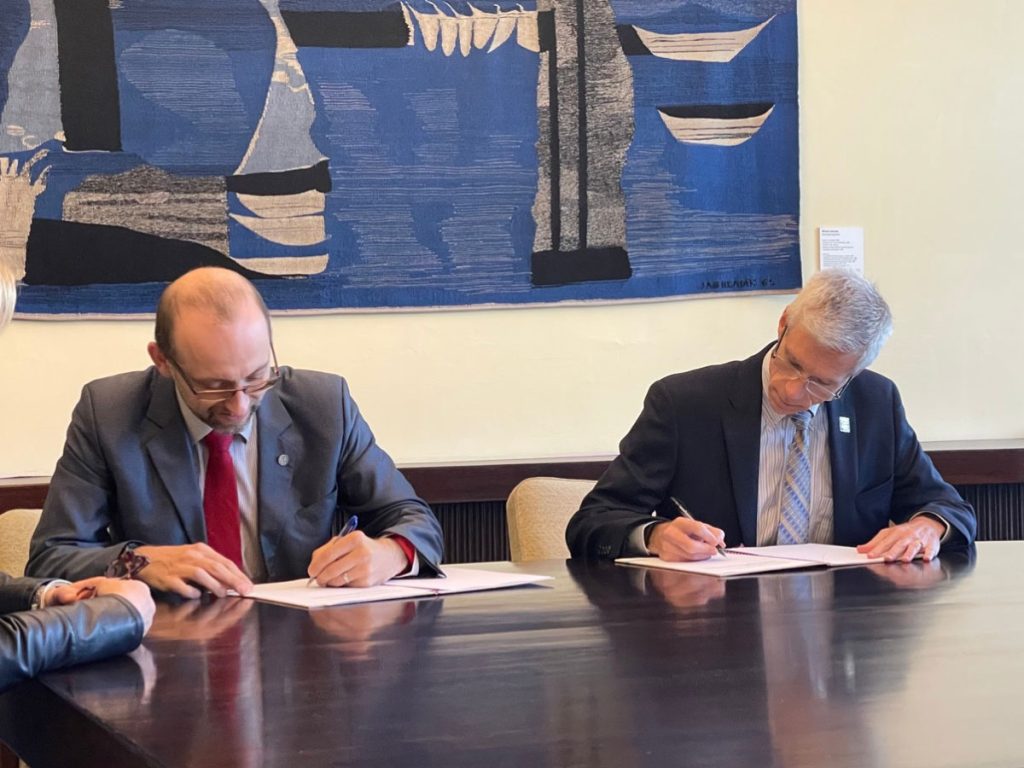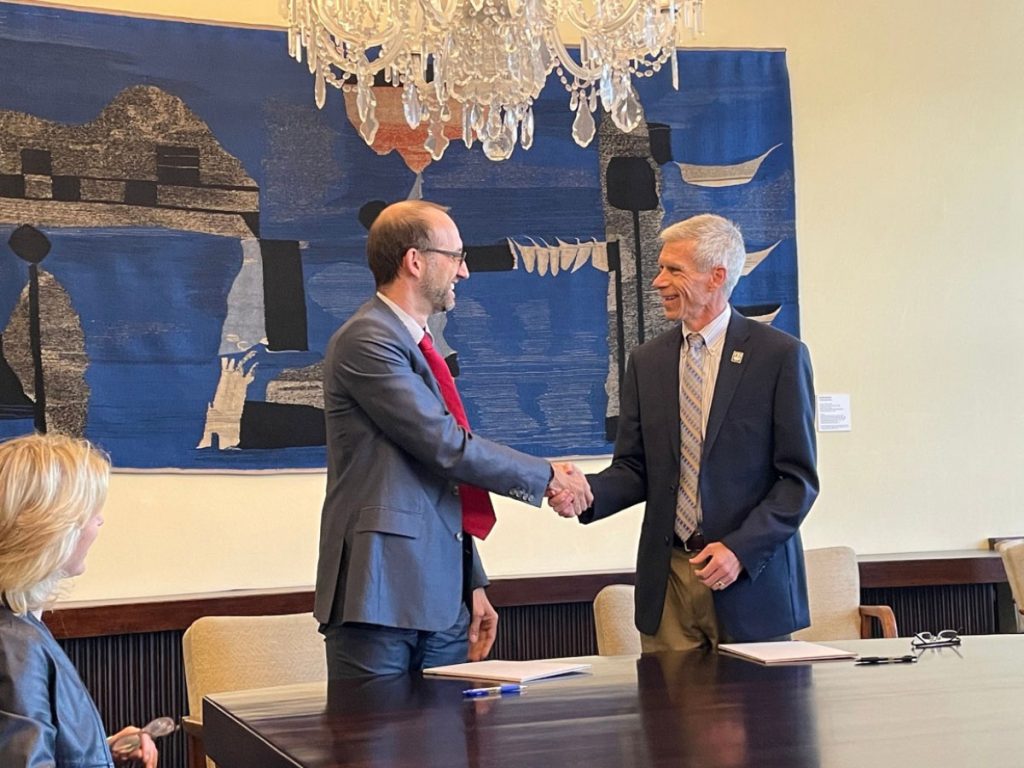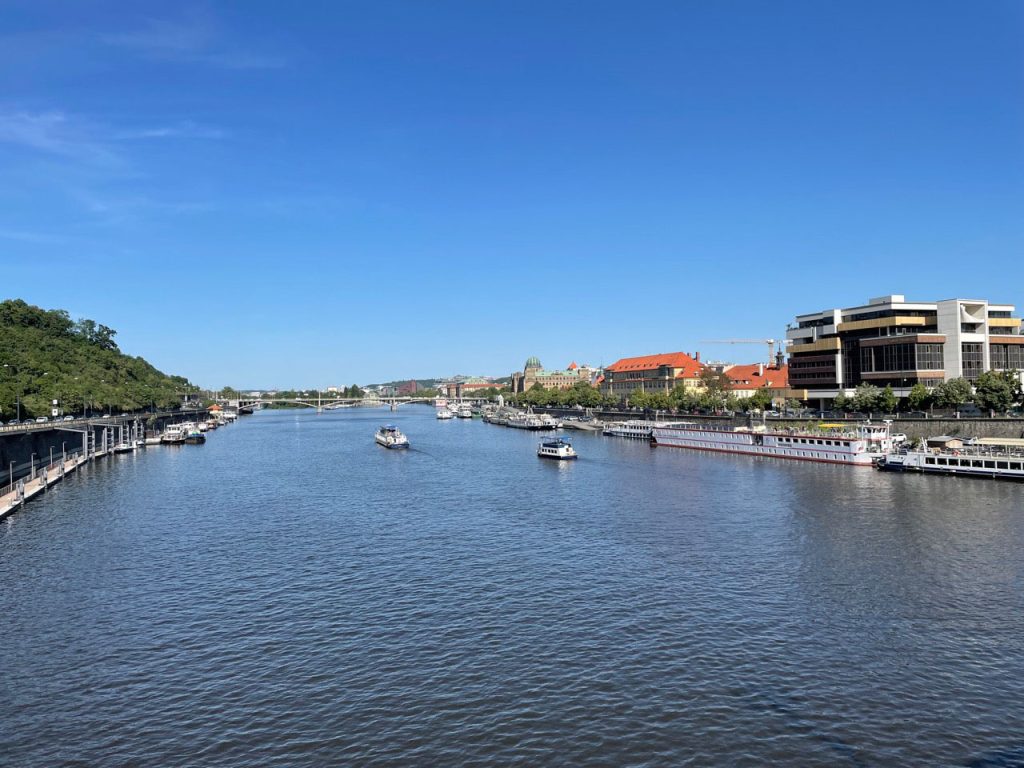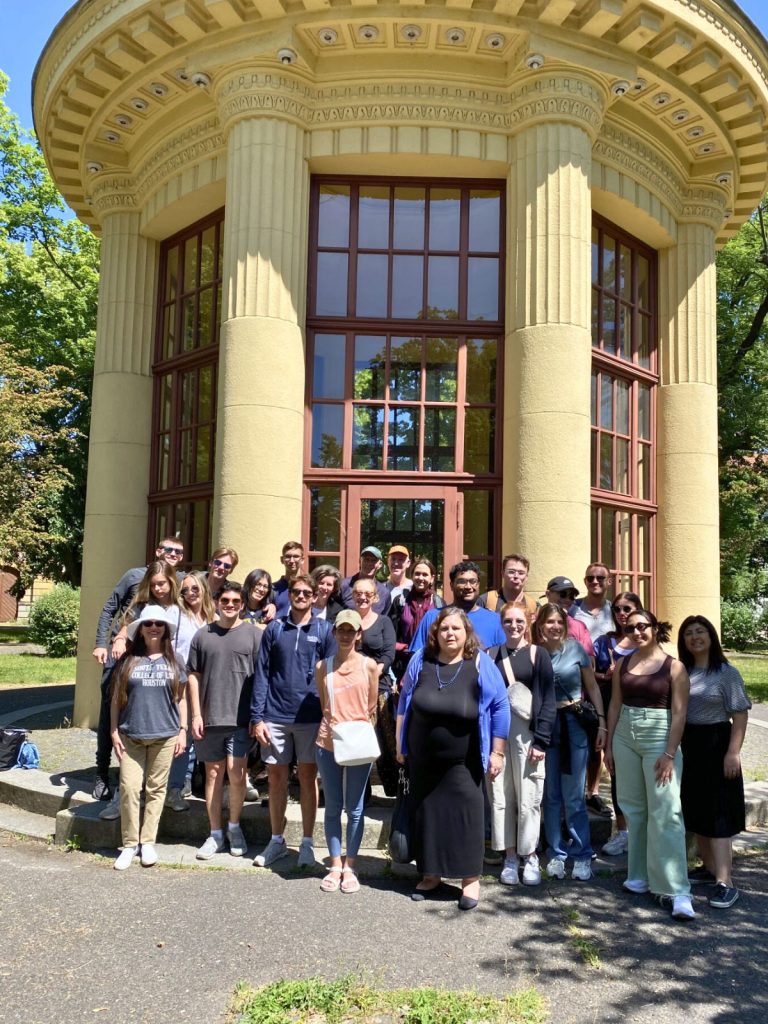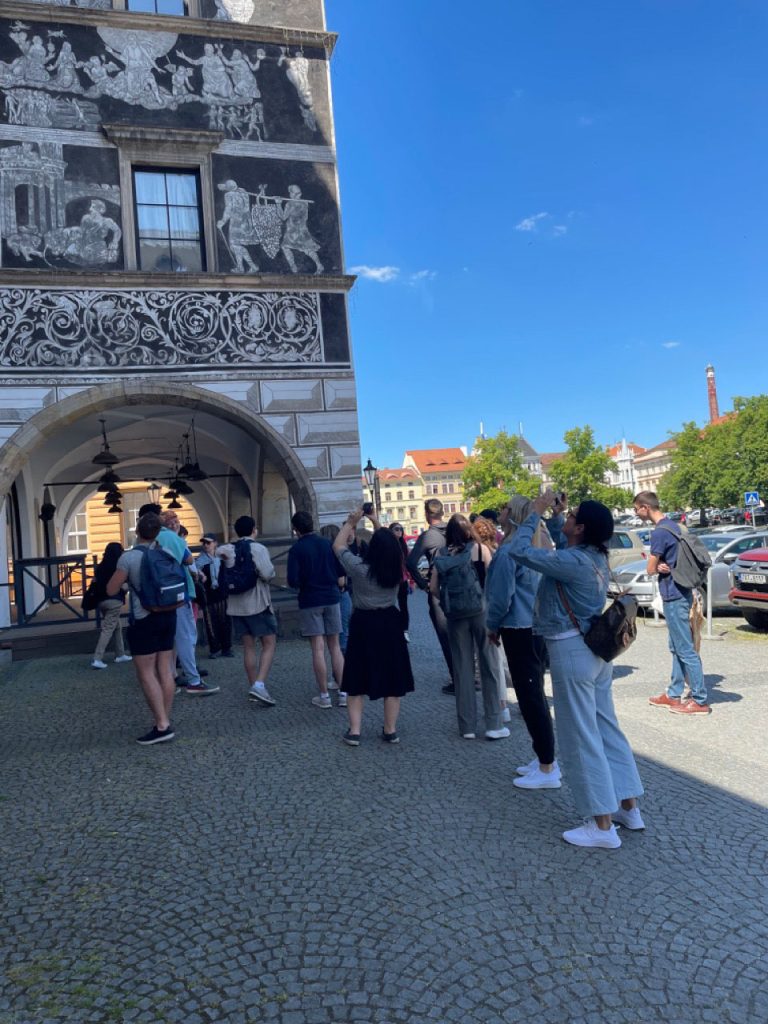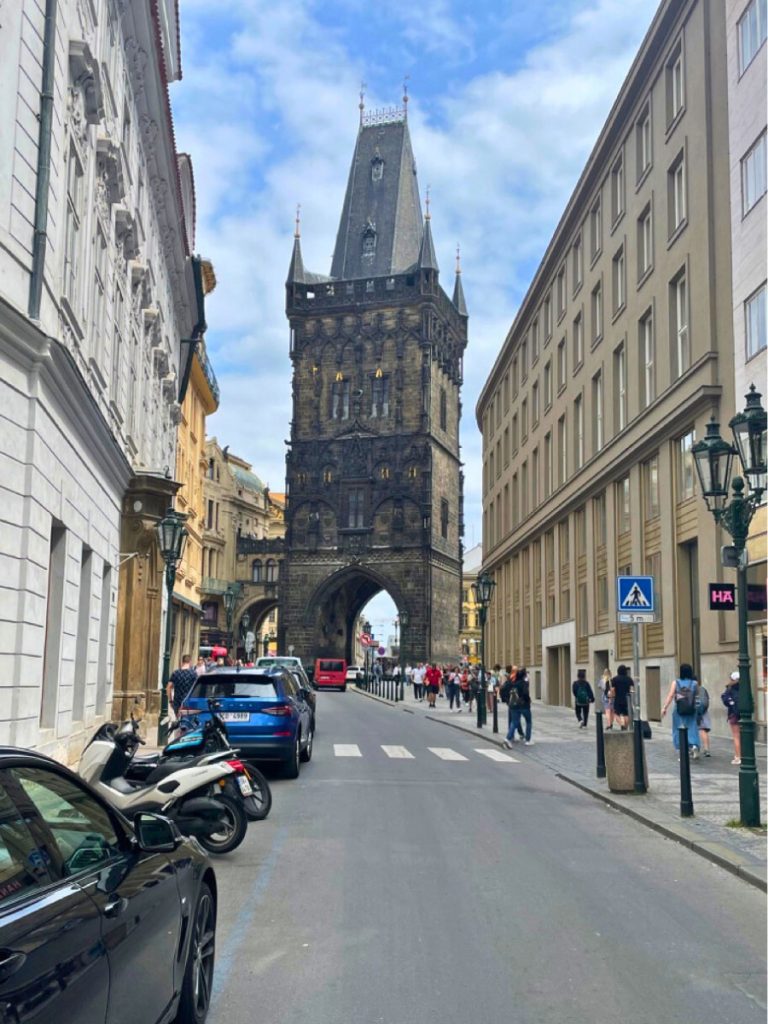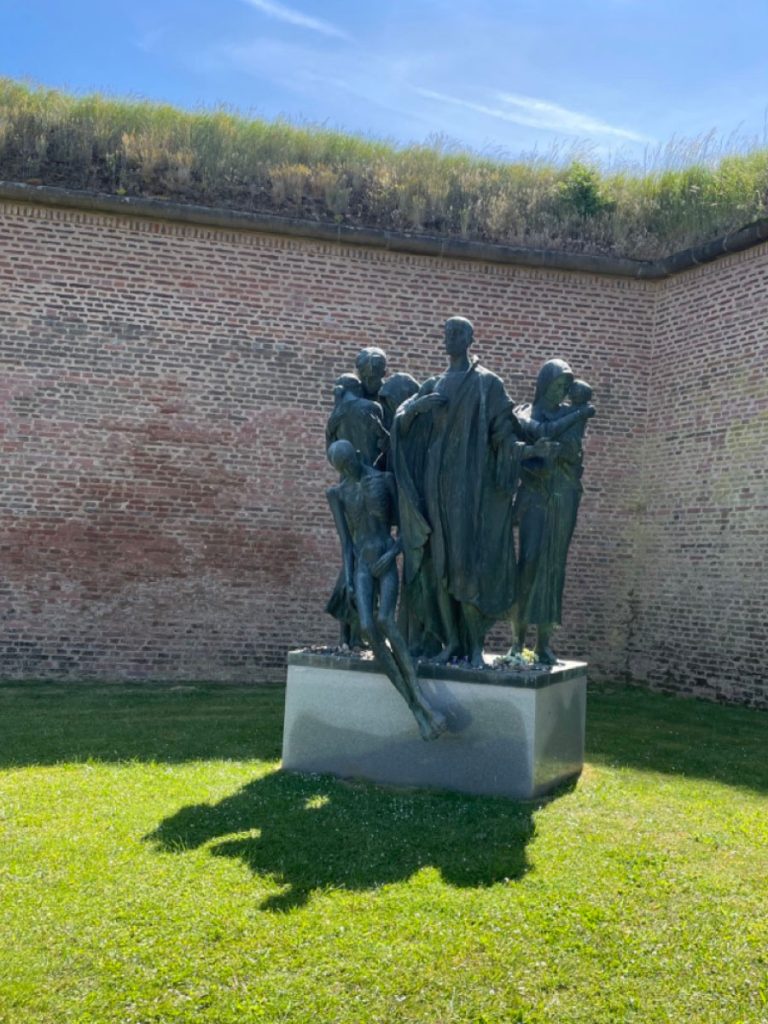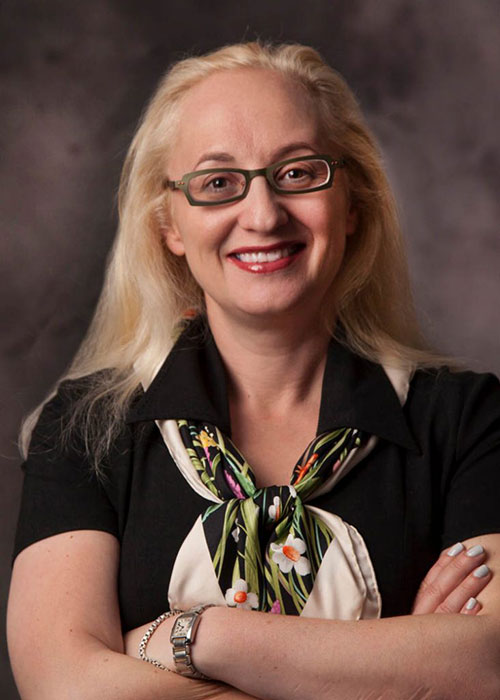Study Abroad Opportunities
A Cultural Immersion Experience
South Texas College of Law Houston offers opportunities for students to earn academic credits while studying in other countries. Challenging courses coupled with immersion in another culture provide students with a once-in-a-lifetime experience.
The Study Abroad program is structured so students can return in time for a summer clerkship/internship or time off before fall classes resume.
Contact Information:
Summer Study Abroad Program
Planning for Study Abroad 2024 in Prague is underway, and students can save the date: May 24, 2024, to June 21, 2024.
VIDEO – Study Abroad FAQ – Spring 2024 Prague, Czech Republic:
Questions?
Study Abroad Trip Spring 2023 – Prague
Features of last year’s Study Abroad trip to Prague included a group visit to the High Court in Prague; a meeting at the Havel & Partners law firm; a trip to Terezin, a WWII concentration camp; a boat tour along the Vltava River, and many more. Students were also able to travel to many cities in the Czech Republic and nearby countries.
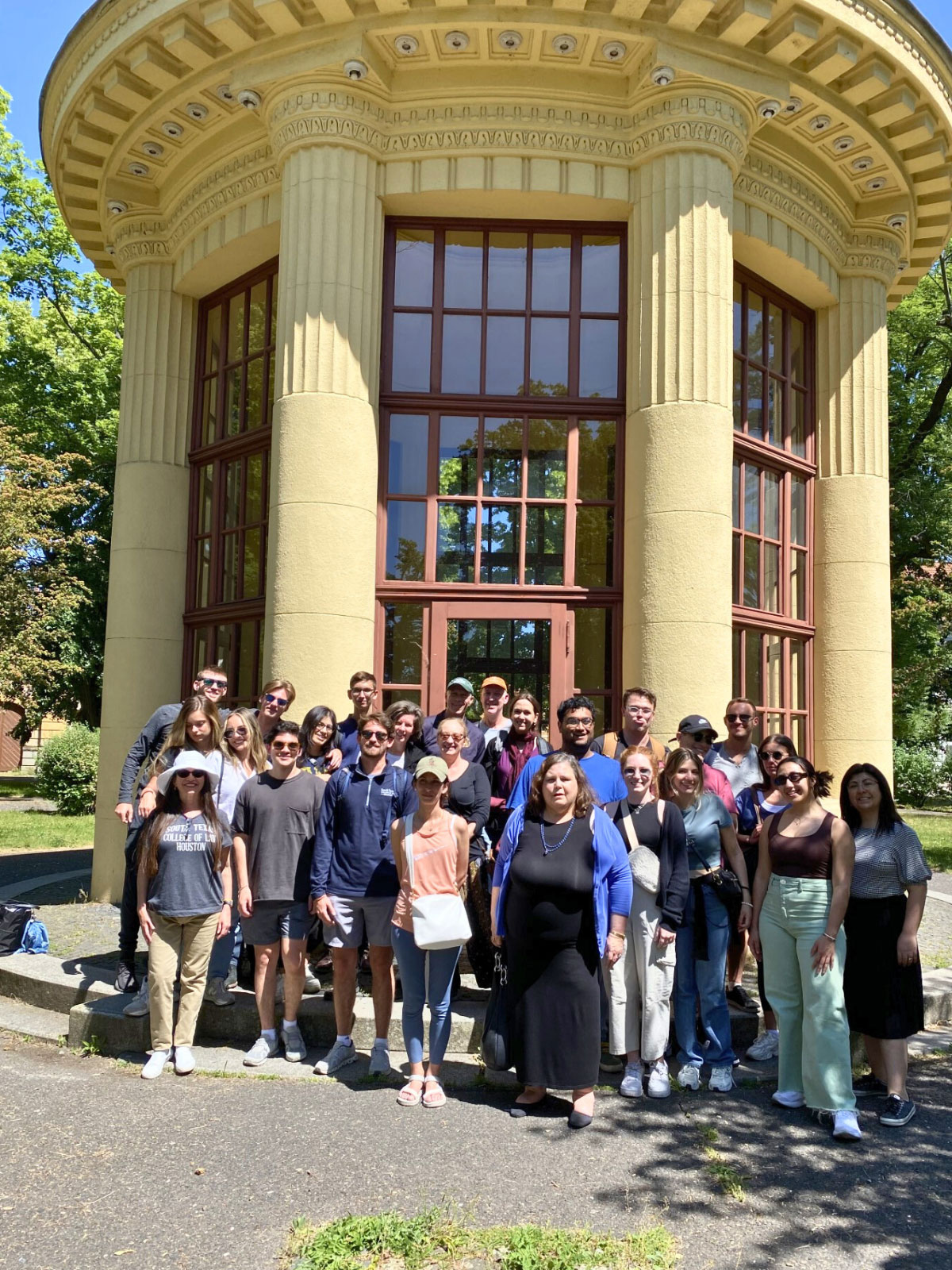
Summer 2024 Study Abroad Details
Approved by the American Bar Association, the Prague program is open to students in good standing at ABA-accredited United States law schools.
“The Magical City,” “The city of a Hundred Towers,” and “The Paris of the East” are some of the common descriptions of Prague. Lying proudly along the banks of the River Vltava, Prague offers a wealth of artistic and cultural treasures, and possesses an individual charm with its many buildings of spectacular architectural form and proportional harmony.
During his reign from 1346-1378, Charles IV made Prague the capital of the empire and founded Charles University in 1348. Prague grew into one of the largest cities in Europe and acquired many of its Gothic landmarks, including the Charles Bridge and St. Vitus Cathedral, during this period. Along with its fascinating history, Prague remains a bustling city of sights, sounds, and culture not to be missed.
Orientation and classes will be held at the historic Charles University Law Faculty building located in the Josefov section of Prague, near Old Town (Stare Mesto).
In order to complement the summer curriculum, one or two class days during Session One will be spent visiting legal institutions, including the Higher Court in Prague. A trip to the Terezin Concentration Camp is organized as part of program costs. While coursework is intensive during the week and attendance at orientation, all class sessions, enrichment lectures, and visits to government agencies and courts is mandatory, two long weekends in Session One allow for travel to nearby destinations. Students should bring a business suit for the court or government agency visits.
$1,000 per credit or $4,000 for four (4) credits.
Tuition includes the $200 non-refundable application fee, orientation, transport passes, and closing dinner.
Tuition Includes:
Tuition includes the orientation program, transport pass, trip to Terezin Concentration Camp, court or government visits, use of facilities at the law library of the Charles University Law Faculty, and course materials supplied by the professors. Tuition does not include airfare, vaccinations, medical insurance, traveling expenses, costs associated with optional tours, or field trips to areas outside the home campus, housing, meals, or books.
Cost of Attendance components include:
- tuition
- fees
- books
- room & board (room costs are based on a 1-bedroom occupancy)
- personal/miscellanseous expenses, and
- transportation (round-trip coach airfare
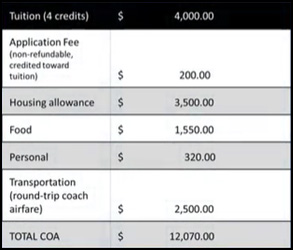
Due Dates and Financial Aid:
The application and $200 application fee are due by February 15, 2024 (remaining balance date TBA).
Enrollment is limited; therefore, early application is encouraged. Financial aid loans are generally available to students participating in this study abroad program. Students interested in obtaining loans for the study abroad program should contact the Financial Aid Office at their home school for additional financial aid deadlines.
MORNING CLASSES: 9 am – 10:50 am
International Cultural Heritage Law (by Prof. Derek Fincham) – 2 credit hours
This course introduces cultural heritage in international law, exploring the intersection of art and law caused by the movement and preservation of material cultural heritage. It covers how law, both domestic and international, addresses stolen art, looted archaeological items, underwater wrecks, and museum collections. It will highlight art protection in armed conflicts and the legal tools preventing intentional destruction and looting of ancient cultures.
OR
Law of Armed Conflict (by Prof. Matt Festa) – 2 credit hours
This course provides an overview of the legal framework and principles governing the actions of State and non-state actors that are engaged in an armed conflict. It will consider legal issues from the perspective of States, international and domestic courts, and the individual, with a special emphasis on our present location in Europe. The course is highly interactive and will follow a discussion format with assigned readings.
AFTERNOON CLASSES: 11 am -12:50 pm
Global Lawyering Seminar (by Prof. Katerina Lewinbuk) – 2 credit hours
This course is a collaborative research seminar that is designed to foster an in-depth study of legal issues related to comparative & global lawyering. In the course, students will engage in open dialogues about the global & comparative issues in legal ethics and profession and the role, image, and regulation of lawyers in different countries and legal systems. Additionally, the course will allow each student to learn how to design and implement a major research project, which will culminate in a paper of publishable qualitywith supporting analysis and appropriate citation.
OR
Comparative Oil & Gas Law (by Prof. Chris Kulander) – 2 credit hours
The course examines the laws, legal issues, and principal contracts utilized in the international oil and gas business. The class will survey: ownership of mineral rights internationally, the role of the National Oil Company (NOC) and government regulators, international legal due diligence, political and other risks associated with international investments, the forms and structure of host government agreements granting the rights to explore and exploit oil and gas, the forms and structure of the principle contracts used in the business, an examination of available industry model contract forms, and extraterritorial reach of certain U.S. laws applicable to the business, including anticorruption laws, trade sanctions and export restrictions. The focus of the course is to provide practical knowledge of international oil and gas legal issues in contracts by analyzing model clauses found within pertinent instruments and contracts.
Students make their own housing arrangements for Prague. An internet search for “apartments in Prague” provides multiple links to companies that provide short term rentals. The law school is located in Prague 1 near Old Town (Stare Mesto) in Josefov, right on the river at the Cechuv “Most” (Most means bridge). The physical address of the Law Faculty building is Namesti Curieovych 7, Prague 1.
Students are provided with transport passes at orientation that are valid on trams, buses and public transportation in Prague, so it is not necessary to live in the immediate vicinity of the law school. The college does not endorse any particular housing agents, but past students have made positive comments about their experiences with housing agencies in Prague such as: www.vrbo.com (select Europe, Czech Republic, then Prague), www.presitgeapartments.cz, and www.lovingprague.com. Costs for housing will vary based on location and desired amenities.
Transportation:
Arranging air and ground transportation to and from Prague is the student’s responsibility. Several airlines serve Prague through European hub cities such as Amsterdam, Frankfurt, Paris and London. Locally, transportation to most areas of the city by tram, trains (Metro) and bus is inexpensive, reliable and easy to navigate.
Accessibility:
Facilities in Europe are not as accessible to individuals with disabilities as American facilities are. Individuals with special needs should contact the program at 713-646-1825 by March 20, 2023.
South Texas College of Law Houston may cancel the summer program in the event of compelling circumstances, including unrest or instability in the host country, international medical situations, or insufficient enrollment.
Responsibility and Modifications:
South Texas College of Law Houston will not be responsible for personal injury or for loss or damage to personal property. Students are expected to maintain or obtain medical insurance coverage for accidents or illness that may occur during their participation in this program, including repatriation expenses.
South Texas College of Law Houston reserves the right to change any aspect of the program which circumstances make necessary or desirable. Participants will be notified of material changes or cancellation of the program. Student and faculty conduct in the Prague program is governed by the rules on attendance, plagiarism, and sexual harassment of South Texas College of Law Houston. Any student who has questions about any aspect of this policy should contact the program director or Assistant Dean Wanda Morrow at South Texas College of Law Houston.
Admission is open to any law student at an ABA-accredited law school who is in good academic standing and who has completed the first year of full-time study or its equivalent in part-time study.
Applicants should:
- Submit an online application for admission
- Pay the $200 non-refundable application fee online
- For non-STCL Houston students, submit a letter of good standing from his or her law school stating that the student is in good academic standing and that credits earned in this program will transfer toward his or her J.D.
An application is not complete without these items. Applications will be accepted on a first-come basis and enrollment is limited, so early application is encouraged.
Should an application not be accepted, South Texas College of Law Houston will return this application fee within 20 days. The application fee will be applied to the tuition and program expenses such as orientation, closing dinner and visits to courts and governmental agencies.
The application deadline is February 15, 2024.
Academic Requirements and Application Information
To participate in study abroad programs, law students must have completed the first year of study or its equivalent in part-time study and be in good academic standing as determined by their home institution. Check each program for application deadlines.
For information and application forms, email studyabroad@stcl.edu or call 713-646-1701.
Study Abroad Q & A
Complete the application and pay the application fee online using the URL from the program brochure or website. Non-STCL Houston students should submit a Letter of Good Standing from their Registrar. We will verify good standing or request Letters of Good Standing for South Texas College of Law Houston students. If you plan to receive Financial Aid for the study abroad program, stop by the Financial Aid office first to schedule an appointment to speak to a counselor about your aid eligibility and requirements to receive aid.
“A Letter of Good Standing will be issued only if a student has made satisfactory arrangements for settlement of his/her account and is not considered at Academic Risk. No student may become a visiting student at another ABA-approved law school at any time such student is on Probation or under Special Academic Supervision.” In addition to the academic status requirements, South Texas College of Law Houston students must also have completed at least 30 semester hours at the end of the semester immediately preceding enrollment in the study abroad program.
The minimum GPA requirement is 2.7 cumulative GPA and 30 STCL Houston semester credit hours.
You will need a current, valid passport to travel abroad. A visa or residence permit may be required for full semester programs when the duration is longer than three months.
Visit the website https://travel.state.gov/passport_services.html for complete details on obtaining a passport.
Unless your existing medical insurance policy covers you while overseas, you will need to purchase a separate policy to cover medical emergencies, including coverage for medical evacuation or repatriation expenses should it become necessary. Several companies offer this type of insurance and it is relatively inexpensive.
In the South Texas College of Law Houston-sponsored summer programs, grades earned will transfer as letter grades and will be averaged in the student’s cumulative grade point average. Students not from South Texas College of Law Houston should check with their home schools for questions about grade transfer policies.
Students regularly enrolled at South Texas College of Law Houston may receive credit toward graduation by taking courses as a visiting student at another ABA-approved law school, or in a study abroad program, by obtaining advance written approval on a form available in the Registrar’s Office. The Registrar in conjunction with the Associate Dean for Academic Affairs must approve the student’s overall plan and each course to be taken prior to the student registering at the other law school. A Letter of Good Standing will be sent to the other law school only if a student has made satisfactory arrangements for settlement of his or her account and has a cumulative grade point average of 3.000. No student may become a visiting student at another ABA-approved law school at any time such student is on Probation or under Special Academic Supervision. See the Student Handbook for complete rules regarding visiting other schools for academic credit. If approved to visit another ABA-approved law school, all grades received as a visiting student or at a study abroad program not sponsored by South Texas College of Law Houston are recorded on a pass/fail basis and are not included in the student’s cumulative grade point average.
You should contact the program director to obtain advance permission to bring a family member or friend. Assuming there is sufficient housing available and that you cover the costs of that person’s meals and accommodation, it may be possible.
Prague, Czech Republic – Students make their own housing arrangements in Prague. The International Programs staff will assist in identifying possible housing options upon request.
The Higher Education Act (HEA) of 1992 mandated that a student can receive financial aid for study abroad if the student is enrolled in a program approved by the home institution. Moreover, the student would be eligible to receive “grants, loans, or work assistance without regard to whether the study abroad program is required as a part of the student’s degree.”
Types of financial aid:
Federal Direct Student Loans
A student attending an approved study abroad program while enrolled at STCL Houston can borrow a Federal Direct Unsubsidized and/or Federal Direct Graduate PLUS loan. A student must complete the FAFSA and be enrolled at least half-time to be eligible.
STCL Houston Scholarships
Institutional Scholarships such as the Dean’s Merit are not available for study abroad.
National Scholarships
The National Security Education Program (NSEP) and the Fulbright Program funded by the Federal government have grants and fellowships for graduate students for study and research overseas. Students should be aware that government organizations in other countries such as the German Academic Exchange Service (DAAD) offer funding opportunities.
Amounts are budgeted to cover tuition, fees, books, round-trip coach airfare, housing, personal and miscellaneous expenses. Apply directly through the financial aid office at your law school to determine aid eligibility and requirements.
Most programs have one or more long weekends built into the program for travel. See each program’s calendar for specific dates available for weekend travel. Consult your financial aid counselor to see if aid for that type of expense is awarded.
If you plan to travel within the United Kingdom or Europe on long weekends or before or after the program, it could be a worthwhile investment. Consult your financial aid counselor to see if aid for that type of expense is awarded.
Generally, you will be notified within two or three weeks of your application being submitted or after grades from the preceding semester are recorded (whichever is later). Some programs may wait until the application deadline has passed and process the applications in batch.
Once the application deadline has passed and you have been notified of your acceptance into the program, you can begin making your travel arrangements. Early booking can often result in substantial savings. However, financial aid proceeds are not available sooner than 10 days prior to the start of the program, so you will need to pay for your tickets in advance and be reimbursed when financial aid proceeds arrive. We strongly recommend that you consider purchasing trip insurance for your airline tickets in the event that world wide events necessitate a change in your travel schedule.
If the State Department issues a Travel Advisory or Warning for an area where one of our programs is being held, students will have the opportunity to withdraw from the program and receive a full refund of tuition paid. We can not refund the cost of airfare, which is why trip insurance is recommended. Unused housing fees would also be refunded in this case. Likewise, if the program is canceled for any reason, students would receive a full tuition refund, but are responsible for any travel expenses incurred such as non-refundable airfare and housing deposits.
You are responsible for purchasing your airline tickets for travel. If you arrange a group of 10 or more who want to travel together, you may find discounted tickets through a consolidator. Often these types of tickets are non-refundable, so again, look into trip insurance.
Only the professors and former students know for sure. However the courses are designed to be of academic rigor comparable to what you would experience in similar courses at your home school. Most programs require written examinations for each course.
Most programs charge a flat tuition rate based on a set number of hours and you are required to take the courses as set forth in the program materials. Where the choice to enroll in less than the full amount of credits offered, there may be a significant impact on financial aid eligibility. You should contact the program director and your financial aid counselor if you want to take less than the required number of credits.
You need special permission from the program director to miss orientation. Attendance at all regularly scheduled classes is expected of each student. You may contact the program director to see if your request can be accommodated.
Due to ABA residency requirements, it is unlikely that participation in a foreign summer program may be used to accelerate graduation. Check with the Registrar’s office about your particular situation.






